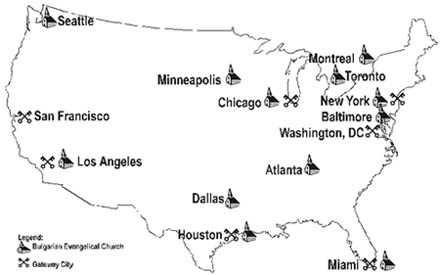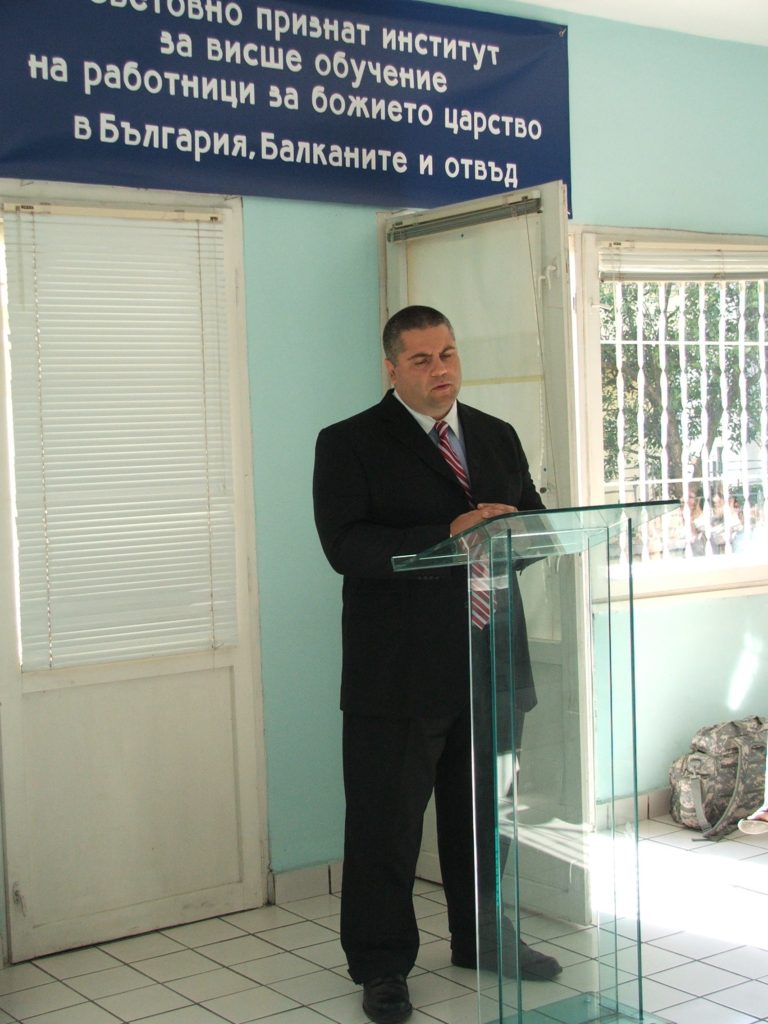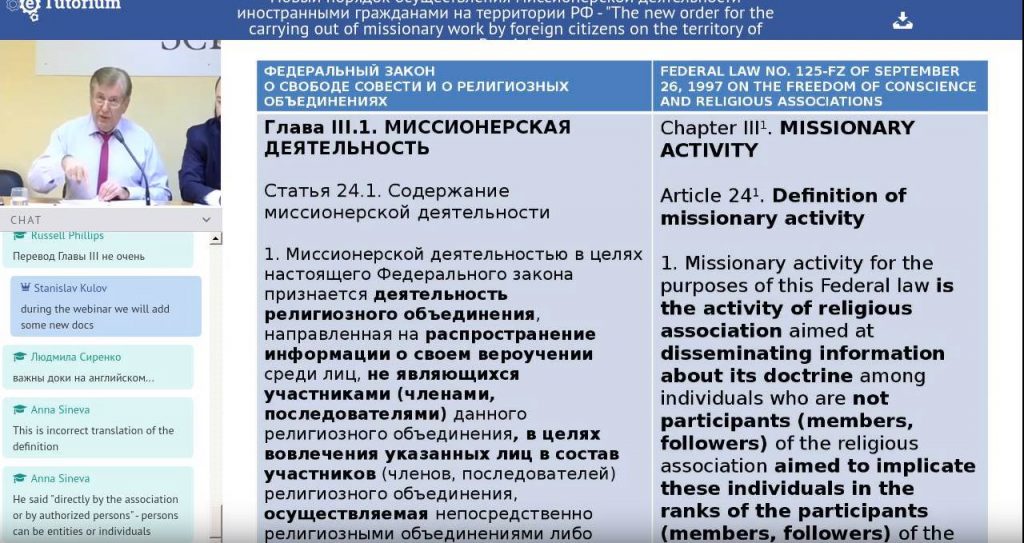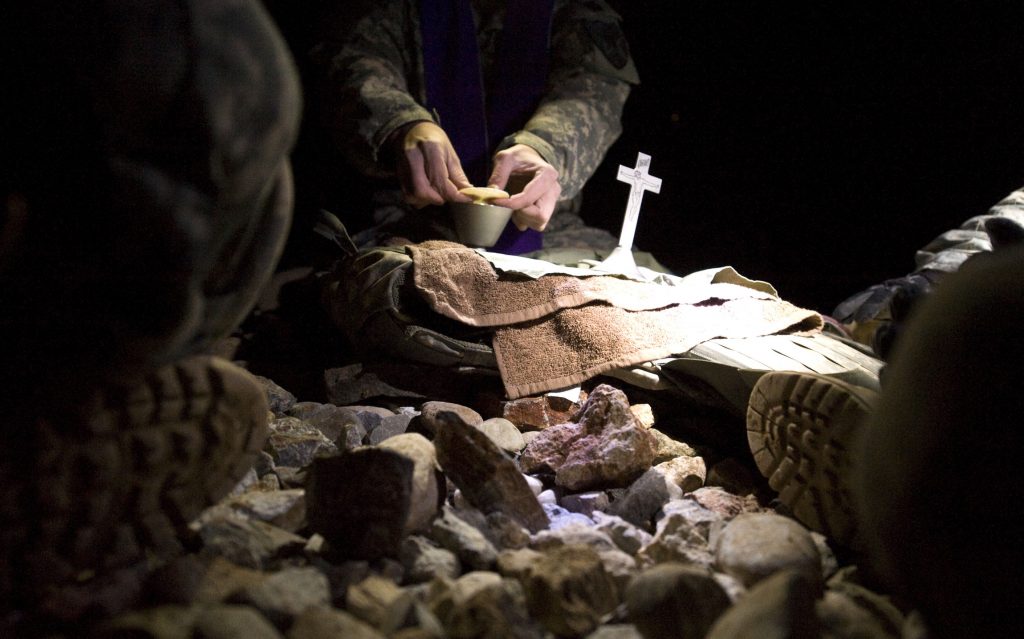Sanctuary Gateway Cities for Eastern European Slavic and Bulgarian Immigrant Churches in North America
 Since 1994 Cup & Cross Ministries International has assisted churches across the United States and has strategically planned and developed a process which incorporates Bulgarian Evangelical Churches in North America. The first success of this endeavor was the establishment of the Bulgarian Evangelical Church of God in Chicago in 1995.
Since 1994 Cup & Cross Ministries International has assisted churches across the United States and has strategically planned and developed a process which incorporates Bulgarian Evangelical Churches in North America. The first success of this endeavor was the establishment of the Bulgarian Evangelical Church of God in Chicago in 1995.
The Bulgarian Church of God in Chicago followed a rich century-long tradition, which began with the establishing of Bulgarian churches and missions in 1907. (read the history) Consecutively, our 1995 Church Starting Paradigm was successfully used in various studies and models in 2003. The program was continuously improved in the following decade, proposing an effective model for leading and managing growing Bulgarian churches.
Based on the Gateway cities in North America and their relations to the Bulgarian communities across the continent, it proposed a prognosis toward establishing Bulgarian churches (see it here) and outlined the perimeters of their processes and dynamics in the near future (read in detail). Since 1995 twelve more Bulgarian churches have been started in strategic immigration gateways across the United States and Canada. For the past four years our team have been involved in the process of establishing Bulgarian congregations in Atlanta, Phoenix and San Francisco. Read complete paper (PDF)
Toward Context of Ministry Applications
In the beginning of the 21st century the Protestant Church in Bulgaria is entering a new constitutional era in the history of the country. Since the fall of the Berlin Wall, the political and economic challenges in Eastern Europe have strongly affected the Evangelical Churches. More than ever before, they are in need of reformation in doctrines and praxes in order to adjust to a style of worship liberated from the dictatorship of the communist regime. In order to guarantee the religious freedom for our young, democratic society, the Protestant Movement in Bulgaria needs a more dynamic representation. Such can be provided only by people who will create a balance between the old atheistic structures and the new contemporary, nontraditional style of ministry.
Similar is the case among Bulgarian Evangelical Churches in North America which also share analogue dynamics with congregations of Latin American immigrants. Several facts are obvious from such comparison. It is apparent that Bulgarian immigrants come to North America in ways similar as other immigrant groups. Large cities which are gateways for immigrants are probable to become a settlement for Bulgarian immigrants due to the availability of jobs, affordable lodging and other immigrants from the same ethnic group.
The emerging Bulgarian immigrant communities share religious similarities and belongingness which are factors helping to form the communities. As a result of this formation process, the Bulgarian Evangelical Churches in North America emerge. It also seems natural to suggest that as this process continues, Bulgarian Evangelical Churches will be formed in other gateway cities and other large cities which meet the requirements to become a gateway city. Such has been the case with Latin American churches. If this is true, it should be proposed that the Bulgarian Churches in North America follow a strategy for church planting and growth which targets these types of cities.
It is encouraging, at the same time, to observer that one of the positive estimates provided by our doctoral project is also coming to reality. In 2002-2004, based on analyses provided by the New Religious Immigrants Project, our research suggested that the next Bulgarian Evangelical Church will be established in the last of the Seven American Gateway Cities which was still without a Bulgarian Church, namely the city of San Francisco. Our resent visit in the area of the Bay Area showed that this prediction is already progressing into a reality as the Bulgarian Diaspora there is already producing a Bible study group out of uniting Bulgarian college students from Barkley and young computer professionals in the area.
Geographical Location of Bulgarian American Churches and Gateway Cities.
Currently, Bulgarian Evangelical Churches are located in cities which have a high concentration of foreign-born immigrants. Such cities are called gateway cities, a large immigrant point-of-entry city to the United States. Immigrants typically enter the United States through one of these cities and settle there. Such cities contain over half of the foreign-born population in the United States. There are Bulgarian Evangelical Churches active in six of the seven gateway cities as follows:
Bulgarian Evangelical Churches in Gateway Cities
| Gateway City | Foreign Born | Percent of Foreign Born | Bulgarian Church |
| 1. New York, NY | 3,657,269 | 18.7% | Yes |
| 2. Los Angeles, CA | 3,944,828 | 27.1% | Yes |
| 3. Houston, TX | 460,380 | 12.3% | Yes |
| 4. Washington, DC | 578,786 | 8.6% | No |
| 5. Miami, FL | 1,072,843 | 33.6% | Yes |
| 6. Chicago, IL | 914,58 | 11.1% | Yes |
| 7. San Francisco, CA | 1,250,693 | 20.0% | No |
Several facts are obvious from the above comparison. It is apparent that Bulgarian immigrants come to North America in ways similar to other immigrant groups, channeled through the listed gateway cities. Large cities which are gateways are more probable to become a settlement for Bulgarian immigrants due to the availability of jobs, lodging and other immigrants from the same ethnic group. The emerging Bulgarian immigrant communities share religious similarities and belongingness which are factors helping to form the communities. As a result of this process of formation of Bulgarian immigrant communities, the Bulgarian Evangelical Churches in North America emerge. It also seems natural to suggest that as this process continues, Bulgarian Evangelical Churches will be formed in the remaining two gateway cities (Washington, D.C. and San Francisco) and other large cities which meet the requirements to become a gateway city (for example, the city Atlanta). If this is true, it should be proposed that the Bulgarian Churches in North America follow a strategy for church planting and growth which targets this type of cities. With all this in mind, the Unrealized Spiritual Harvest of Bulgarian Churches in North America remains unforgiving in history…
Resources for Further Study:
- Seven Churches of Revelation
- How to Start a Bulgarian Church in America from A-to-Z
- Bulgarian Churches in North America: Contextual Assessment
- Bulgarian Churches in North America: Statement of Problem
Addressing the Masters of Chaplaincy Ministry Program Graduating Class in Bulgaria
New Russia Law on Religious Missions Explained
The Road Ahead for the Master’s of Chaplaincy Ministry Program (2016-2020)
 We are proud to announce that the Master’s of Chaplaincy Ministry Program, we designed and launched in Bulgaria in 2006, has been selected to be part of the Social Service Program of New Bulgarian University. After being for years a valuable part of the regular curriculum of the Bulgarian Evangelical Theological Institute and the St. Trivelius Institute in the capital Sofia, the chaplaincy program has received the highest level of recognition as successful graduates will be finally able to receive government recognized degrees and apply their knowledge and training in chaplaincy on a professional level. The chaplaincy program can also serve within the Integration Proposal of local NATO programs and be instrumental in dealing with the enormous wave of Middle East migrants crossing through Bulgaria today.
We are proud to announce that the Master’s of Chaplaincy Ministry Program, we designed and launched in Bulgaria in 2006, has been selected to be part of the Social Service Program of New Bulgarian University. After being for years a valuable part of the regular curriculum of the Bulgarian Evangelical Theological Institute and the St. Trivelius Institute in the capital Sofia, the chaplaincy program has received the highest level of recognition as successful graduates will be finally able to receive government recognized degrees and apply their knowledge and training in chaplaincy on a professional level. The chaplaincy program can also serve within the Integration Proposal of local NATO programs and be instrumental in dealing with the enormous wave of Middle East migrants crossing through Bulgaria today.
In the beginning of the 21st century in Bulgaria, law and chaplaincy meet on the road to democracy. But before chaplaincy could be legalized completely and endorsed by the state to its full functionality, several changes must be undergone. Some of them are:
- Legal provision allowing chaplains to work as staff in the army, which guarantees the equal presence of protestant chaplains as well.
- The approval, acceptance and implementation of a NATO based model for chaplaincy within the structures of the Bulgarian Army.
- Periodical and systematic educational strategy toward chaplaincy workers among Bulgarian evangelicals.
- A paradigm for cooperation of Bulgarian chaplains from various ethnic, religious and cultural backgrounds.
- Further research publications to enhance the efficiency of chaplaincy within the Bulgarian national context.
Also important [click to read]:
- U.S. Department of State recognizes our chaplaincy efforts in Bulgaria
- Bulgarian Chaplaincy Association: Integration Proposal with Local NATO Programs
- Bulgarian Chaplaincy Association: Vision and Resolution
- Chronology of our role and involvement in developing Church of God chaplaincy in Bulgaria since 2001
- Master’s of Chaplaincy Ministry Program in Bulgaria Reflections
- The Past Decade of Chaplaincy in Bulgaria (2006-2016)
- Related Publications and Presentations by Cup & Cross Ministries International
Further Developments on the Master’s Degree of Chaplaincy Ministry in Bulgaria
 We are proud to announce that the Master’s of Chaplaincy Ministry Program, we designed and launched in Bulgaria in 2006, has been selected to be part of the Social Service Program of New Bulgarian University. After being for years a valuable part of the regular curriculum of the Bulgarian Evangelical Theological Institute and the St. Trivelius Institute in the capital Sofia, the chaplaincy program has received the highest level of recognition as successful graduates will be finally able to receive government recognized degrees and apply their knowledge and training in chaplaincy on a professional level. The chaplaincy program can also serve within the Integration Proposal of local NATO programs and be instrumental in dealing with the enormous wave of Middle East migrants crossing through Bulgaria today.
We are proud to announce that the Master’s of Chaplaincy Ministry Program, we designed and launched in Bulgaria in 2006, has been selected to be part of the Social Service Program of New Bulgarian University. After being for years a valuable part of the regular curriculum of the Bulgarian Evangelical Theological Institute and the St. Trivelius Institute in the capital Sofia, the chaplaincy program has received the highest level of recognition as successful graduates will be finally able to receive government recognized degrees and apply their knowledge and training in chaplaincy on a professional level. The chaplaincy program can also serve within the Integration Proposal of local NATO programs and be instrumental in dealing with the enormous wave of Middle East migrants crossing through Bulgaria today.
The Master’s Degree of Chaplaincy Ministry in Bulgaria was:
- Upgraded to the necessary educational and professional levels, applicable to the specific context of ministry in Bulgaria (December 2010)
- Presented in its upgraded form for approval before the educational board of BETI in 2011 (January 2011)
- Applied in its full capacity with the remaining modules in Theology (Spring 2011), Counseling (Fall 2011) and Master’s Thesis (exp. 2012)
- Transferred to the New Bulgarian University in Sofia under their new social worker studies program.
Also important [click to read]:
- U.S. Department of State recognizes our chaplaincy efforts in Bulgaria
- Bulgarian Chaplaincy Association: Integration Proposal with Local NATO Programs
- Bulgarian Chaplaincy Association: Vision and Resolution
- Chronology of our role and involvement in developing Church of God chaplaincy in Bulgaria since 2001
- Master’s of Chaplaincy Ministry Program in Bulgaria Reflections
- The Past Decade of Chaplaincy in Bulgaria (2006-2016)
- Related Publications and Presentations by Cup & Cross Ministries International
Church of God Chaplaincy in Bulgaria: In the beginning…
 Bulgarian Chaplaincy Association: Celebrating a Decade of Ministry
Bulgarian Chaplaincy Association: Celebrating a Decade of Ministry
We are proud to announce that the Master’s of Chaplaincy Ministry Program, we designed and launched in Bulgaria in 2006, has been selected to be part of the Social Service Program of New Bulgarian University. After being for years a valuable part of the regular curriculum of the Bulgarian Evangelical Theological Institute and the St. Trivelius Institute in the capital Sofia, the chaplaincy program has received the highest level of recognition as successful graduates will be finally able to receive government recognized degrees and apply their knowledge and training in chaplaincy on a professional level. The chaplaincy program can also serve within the Integration Proposal of local NATO programs and be instrumental in dealing with the enormous wave of Middle East migrants crossing through Bulgaria today.
But let us backup just a moment and start from the very beginning. In the summer of 1995, while pioneering the first Bulgarian church in the Chicago Metro, the local Church of God state office offered a civil chaplaincy training course for beginners. Unfortunately, due to our heavy church schedule, the chance to attend was low and virtually unobtainable. It was not until five years later that our interest in the field was finally rewarded, as in the summer of 2000 both my wife-to-be and I completed the required course work for chaplaincy accreditation, followed by an intense module at the Erlanger Hospital in Chattanooga, where essentially the whole idea for the resurrection of chaplaincy ministry in Bulgaria was born.
Today, our Master’s of Chaplaincy Ministry Program has produced a number of graduates who are serving in various chaplaincy positions and civil services in Bulgaria. Please continue to pray for all our named and unnamed chaplains on mission. (Click here to read more)
Also important [click to read]:
- U.S. Department of State recognizes our chaplaincy efforts in Bulgaria
- Bulgarian Chaplaincy Association: Integration Proposal with Local NATO Programs
- Bulgarian Chaplaincy Association: Vision and Resolution
- Chronology of our role and involvement in developing Church of God chaplaincy in Bulgaria since 2001
- Master’s of Chaplaincy Ministry Program in Bulgaria Reflections
- The Past Decade of Chaplaincy in Bulgaria (2006-2016)
- Related Publications and Presentations by Cup & Cross Ministries International
GO!
MARK 16:15-18 in the original King James Version of the Bible
15 And he said vnto them, Goe yee into all the world, and preach the Gospel to euery creature.
16 He that beleeueth and is baptized, shalbe saued, but he that beleeueth not, shall be damned.
25 Years of Miracles: 2009
 Mission BULGARIA 2009: Services in the Yambol Region
Mission BULGARIA 2009: Services in the Yambol Region
At the recent regional ministry conference, where the Yambol, Sliven, Bourgas and Nova Zagora regions were represented, many reported exciting ministry results in various locations. Revivals broke in the villages of Kamenetz and Malomir, spontaneous prayer meetings arise often, while healings and various miracles are reported almost weekly. A water baptismal service for new believers is scheduled for the beginning in August at the Thundja River. In the midst of severe poverty and political unrest, the move of God has become a life answer for many. It is personally challenging when you see the weather and earth beaten hands of the man worshiping beside you and you witness the widow giving her last mite. Then when service is over you notice how the frail elderly ladies cover their heads with a white cloth so that the sun does not beat on their heads during their walk home. So to say that we spent our day ministering to those of the village churches is an understatement because it is those of the village churches whom ministered to us. Our last service ended in the afternoon and it was truly a special day.
National Youth Camp in Bulgaria (August 10, 2009)
In years past, we have visited and ministered to a dozen different youth camps in Bulgaria. Each of them has been unique and special, but it has been a while since we have ministered at a youth camp where people have been so hungry to receive from God. We prayed for the healing of dozens of people. Many more were delivered instantly from various infirmities, both in soul and in body. Eight young people received the baptism with the Holy Spirit the very first night and many more were baptized in the following evenings. You could see parents and children praying for each other around the clock. One girl saw a vision of the “Heart of God” being exalted in our midst. As we continued with our next ministry appointment in the city of Varshetz, some stayed behind to spend one more day in the presence of the Lord on the top of the mountain. We will reconvene with them this week at the next youth camp organized at the Karandila Mountain near the town of Sliven.
Renewing of the Evening Services in Yambol (September 1, 2009)
We report that with the assistance of our team and the help of many partners in ministry, the renewal of Sunday evening services at the Yambol Pentecostal Church has been successful. In the course of this work, we were able to witness a dramatic outpouring of the Holy Spirit each Sunday service from 6 to 10 PM as some hundred people gather for worship. We are still receiving reports of various healings and miracles that occurred each night, among which are:
- A lady of the worship team, who has played the violin in church all her life, scheduled for surgery that same week due to a bone-ligament condition was instantly healed during the prayer.
- Deliverance of multiple cases of headache, migraines and sinus were reported at the end of the alter service.
- As the church continued in several hours of prayer, around 9 PM a lady threw herself on the floor with screams and convulsions and was delivered from a demon.
- An elderly gentleman with a chronic condition in his vestibular apparatus due to a foot injury reported instant improvement and ran joyfully through the church.
- Several people reported improvement in their eyesight and hearing.
- Instant disappearing of pain and discomfort in bones, muscles, ligaments and chronicle conditions in back, hip and neck areas were reported during the prayer.
- A lady with a broken arm, who was watching the service live on the internet, later reported that her pain disappeared during the course of the service.
- Several people, who were brought to service from the local Dialysis Treatment Center, also reported instant relief. We are now waiting for doctoral reports as confirmation for the healings.
He Remains the Same (November 20, 2009)
This past Sunday we were able to return to the Awakening Church of God in Stara Zagora. After the Word, all in service gathered at the alter. Although the church was full, there were several families absent due to the flu epidemic which has spread across the country with 8 dead already accounted for. But during this time when the government is closing down schools and people are wearing masks for health reasons, the Lord’s healing power remains the same and we are reminded of His promise that He will protect His people and “it shall be well with them”. Among this, we were encouraged powerfully by the presence of the Holy Spirit in our meetings. After all the changes and transformations the Stara Zagora church has gone through during years past, it was encouraging that God remains the same. The people who are faithful to Him can trust in His ever-sameness with their lives and future, for His promises to us change not. Our team is planning to return to Stara Zagora before the end of the month for the next leg of our National Mega Youth Rally in Bulgaria
25 Years of Miracles: 2008
 Ministering in Sofia with Three Services a Day (July 1, 2008)
Ministering in Sofia with Three Services a Day (July 1, 2008)
Ministering at the Grace Church of God in Sofia, Catholic Ecumenical Apostolic Church of Bulgaria and the Gipsy ghetto of Phillipovtzyi, on the Westside of the capital Sofia. The brief sermons were followed by an hour long alter services in which we prayed for people and anointed them for their needs. Through the prayer a number of people reported various healings. A father and son we prayed for were respectively baptized in the Holy Spirit and delivered from drugs. Among many other healings that happened, one miracle in particular stands out. A father of a little girl came into the service requesting to be anointed with oil and prayer from for his two month old daughter whom he left in hospital with double pneumonia. He returned the next day to report that he girl was healed after the prayer and released by the doctors with a clean bill of health.
Preaching in Yambol (July 20, 2008)
We have been preaching through the Gospel of Mark in the Pentecostal Church in Yambol for several weeks now. As we have trusted the Holy Spirit in the interpretation of the Gospel text, we have seen again how the Word of God is confirmed with miracles and wonders. These signs have surpassed simple healings, supplying of financial needs or family restoration and has proceeded into life transforming experiences expressed in salvation, sanctification, Spirit baptism and extraordinary illumination opening the spiritual eyes of many to receive the text in a practical experiential matter of which many have not been yet aware. We have literally seen how the Word touches hurt hearts, heals sorrowed souls and transformers lives forever. And this is the miracle of preaching the Good News of God to the world. For if we want revival to go on, the Gospel must be preached…
Mission BULGARIA 2008 Miracles Reports (September 10, 2008)
We were pleasantly surprised upon our return to Yambol with a new healing report. During the Wednesday night service in Yambol the worship team always sings the old gospel song “There’s Power in the Blood” right before we minister the word. After the song a lady that plays the violin testified that some ten years ago, while ministering in Yambol we had asked for that same song to be sung before the message. She sang the song with the congregation while her left hand was quenched by a sickness not only causing her constant pain and discomfort, but disabling her from playing the violin. She testified that her healing a decade ago in one of our services was still powerful and real today. Little we knew that while she was testifying another lady in the congregation was suffering with a similar painful condition in the right side of her body disabling her leg and foot. During the time when we sung the songs and the testimony was presented she reported that she felt the presence of God in a very powerful way and continued to feel it through the next 48 hours. She later testified that God had healed her entirely from the pain and she confidently went to the doctor only to confirm that her condition had disappeared completely.
25 Years of Miracles: 2007
 Healing Revival in Seneca (February 15, 2007)
Healing Revival in Seneca (February 15, 2007)
In the beginning of February we began a Friday Night Healing Revival at the High Falls Church of God in Seneca. We committed ourselves to spend a month of prayer and fasting before God, studying and preaching the Word while expecting healings and miracles to happen. Services began February 2nd, as we invited other churches to join us in prayer and fasting expecting God’s miraculous intervention through a fresh experience of the power of the Holy Spirit.
Various Healings Reported
Several healings were reported as early as the first Friday night service. Other testimonies followed in the days to come, as people moved in faith and prayed during the altar services. This is no different than our ministry experience in Bulgaria in the past two years, where in the midst of numerous salvations and Holy Spirit baptisms, healings were reported on a regular basis. Just a reminder that God still has the power to save, heal and deliver.
Wave of Healing Revival
We have received responses from churches as far as Mississippi and Maryland who have also prayed and fasted for a move of the Spirit expecting miracles and healings. We are persuaded beyond a shadow of a doubt that in the beginning of the 21st century God is doing a new thing purposing a complete physical and emotional healing of his people. If your church has also prayed for a healing revival, please let us know how we can partner with you in this ministry endeavor.
Mission BULGARIA 2007 (April 20, 2007)
The itinerary of the small mission team contains the minimum of four weekly trips to villages in the area. They often hold up to twenty services per week as the team is always open for new opportunities for ministry. Their church meetings are often accompanied with miracles and healings, which have drawn many new converts.












